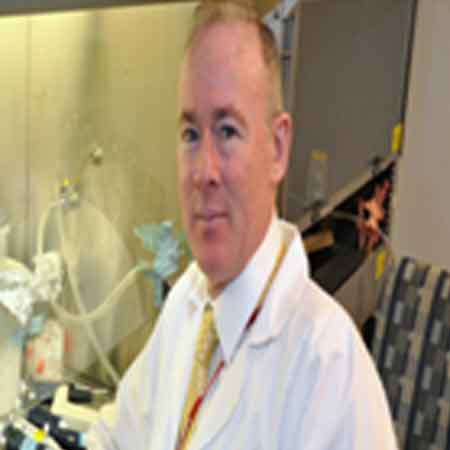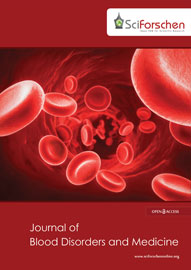
Assistant Professor
- :513-558-2186 :513-558-6708
Division of Hematology & Oncology
University of Cincinnati
USA
Education
| 2011 | Heamatology and Oncology Fellow | National Cancer Institute, National Institutes of Health, Bethesda MD |
| 2007 | Clinical/Research Fellow | Harvard Medical School /Boston VA Healthcare, West Roxbury, MA |
| 2005 | Medicine Residency | Roger Williams Medical Center, Providence, RI |
Biography
His recent advances to better understand the cell biology andgenomics in human cancers have increased our understanding of disease pathogenesis, helped to identify novel therapeutic targets, and provided the scientific rationale for combining targeted therapies to increase tumor-cell cytotoxicity and abrogate drug resistance. Intratumor heterogeneity arises as a consequence of genetic changes, environmental differences and reversible changes in cellular properties.However, the genetic basis of recurrence at the single cell level remains poorly understood. Therefore, in this proposal they hypothesize that unraveling the genetic diversity of human glioblastomas at the single cell level will lead to a better understanding of the intracellular pathways that drive disease recurrence and expose molecular vulnerabilities that improve therapeutic intervention. We will initially focus on categorizing cells isolated from glioblastoma patients at relapse. These studies will compare the changes that occur in tumors that contribute to disease recurrence and may reveal common genetic traits that are similar in relapsed brain tumors. The ability to fully characterize single cells across multiple platforms and in multicellular environments is limited by our inability to uniquely identify and track single cells. Accurate tracking of single cells and their progeny in complex multicellular microenvironments will be essential to realize the immense potential of molecular probes, imaging technologies. These studies will advance our laboratory’s long-term goal of developing novel therapies by enabling screens for agents capable of specifically targeting human brain tumor cells. In summary their studies have profiled individual patients in order to tailor targeted therapy for them since it is likely that cocktails of drug combinations will eventually be needed to overcome drug resistance.
Research Interest
Proteasome-based therapies, plasma cell hematologic malignancy, Multiple Myeloma, Hematology Oncology.
Professional Activities:
| 2015 | New England Journal of Medicine, Featured Invited Expert – Discussion forum on Immunotherapy in Multiple Myeloma |
| 2015 | American Society of Hematology Advocacy Leadership Institute |
| 2015 | Society of Hematologic Oncology (SOHO) Meeting Travel Award |
| 2015 | Multiple Myeloma Think Tank for the Integration of Novel Targets for Therapy |
| 2015 | Society of Hematologic Oncology (SOHO) Meeting Travel Award |
| 2014 | Society of Hematologic Oncology (SOHO) Meeting Travel Award |
| 2013 | American Society for Hematology Annual Meeting- Oral presentation |
| 2013 | UC COM, Hematology & Oncology Translational Research Studies Award |
| 2013 | ASH Annual Meeting - Travel award with S. Jagannathan |
| 2013 | ASCO/AACR Methods in Clinical Cancer Research, Workshop with E. Malek |
| 2013 | Society of Neuro-Oncology Annual Meeting - Travel Award with N. Narayanan |
| 2013 | ASH Annual Meeting - Achievement award with S. Jagannathan |
| 2010 | ASCO-NCI-EORTC Cancer Foundation Travel Award |
Publications
- Ahmad, N., Haider, S., Jagannathan, S., Anaissie, E., & Driscoll, J. J. (2014). MicroRNA theragnostics for the clinical management of multiple myeloma. . Leukemia , 28 (4) , 732-8.
- Haider, S., Ahmad, N., Anaissie, E., & Driscoll, J. J. (2014). Future directions in the clinical management of amyloid light-chain amyloidosis. . Leukemia & Lymphoma.
- Subramani, A., Alsidawi, A., Jagannathan S., Sumita, K., Sasaki, AT, Aronow, B., Warnick, RE, Lawler, S. and Driscoll, JJ. (2013). (Under Review). Brain microenvironment-induced reduction in microRNA-768-3p promotes metastatic tumor growth, drug resistance and KRAS expression.
- B pathway activation in myeloma.kDriscoll, JJ, Amin, S., Le Pape, E., Lee, MJ, Trepel, J., Tannous, BA, Munshi, NC, Anderson, KC and Annunziata, CM. (2013). (Under Review). Cullin-1 controls the clinical and cellular response to bortezomib through NF-
- Driscoll, JJ, Khaled, A, Jagannathan, S. and Subramani, A. (2013). (In Press). The Mammalian Target of Rapamycin as a Therapeutic Strategy in Oncology in Mammalian Target of Rapamycin (mTOR): Structure, Signalling Pathways and Biological Effects.
- Driscoll, JJ, Khaled, A, Jagannathan, S. and Subramani, A. (2013). (In Press). Targeting the PTEN Tumor Suppressor as an Anti-Cancer Therapeutic Strategy. In PTEN: Structure, Mechanisms-of-Action, Role in Cell Signaling and Regulation.
- Potluri, V., Noothi, S. K., Vallabhapurapu, S. D., Yoon, S., Driscoll, J. J., Lawrie, C. H., & Vallabhapurapu, S. (2013). Transcriptional repression of Bim by a novel YY1-RelA complex is essential for the survival and growth of Multiple Myeloma. . PloS One , 8 (7) , e66121.
- Kim, K., Godarova, A., Seedle, K., Kim, M., Ince, T. A., Wells, S. I., Driscoll, J. J., & Godar, S. (2013). Rb Suppresses Collective Invasion, Circulation and Metastasis of Breast Cancer Cells in CD44-Dependent Manner. . PloS One , 8 (12) , e80590.
- Subramani, A., Alsidawi, S., Jagannathan, S., Sumita, K., Sasaki, A. T., Aronow, B., Warnick, R. E., Lawler, S., & Driscoll, J. J. (2013). The brain microenvironment negatively regulates miRNA-768-3p to promote K-ras expression and lung cancer metastasis. . Scientific Reports , 3 , 2392.
- Driscoll, JJ., De Chowdhury, R. (2012). Molecular Crosstalk between the proteasome, aggresomes and autophagy: Translational potential and clinical implications . Cancer Letters , 325 , 147-154.

